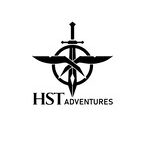Mount Kilimanjaro, at 5,895 meters (19,341 feet), is Africa’s highest peak and a coveted destination for trekkers. The climb is a test of endurance and an immersion in diverse landscapes and cultures.
Trekkers can choose from several routes. The Marangu Route, known as the “Coca-Cola Route,” offers hut accommodations and is popular for its comfort. The Machame Route, or “Whiskey Route,” is more challenging but offers stunning views. Routes like Lemosho and Rongai provide varied terrains and less crowded paths.
Preparation is crucial. Acclimatization to high altitude is key, with many itineraries including extra days for adjustment. Essential gear includes layered clothing, sturdy boots, and a quality sleeping bag due to extreme temperatures. Physical fitness and mental resilience are vital.
The ascent takes five to nine days, passing through diverse climatic zones—from lush rainforests to arctic conditions. The trek involves appreciating flora and fauna, engaging with local guides and porters, and witnessing breathtaking sunrises above the clouds.
Reaching Uhuru Peak, the summit, offers unparalleled views and a profound sense of accomplishment. The Kilimanjaro trek is a life-changing adventure, blending the thrill of high-altitude climbing with the beauty of Tanzania’s landscapes.
Kilimanjaro Trek Itinerary (Machame Route)
Arrive at Kilimanjaro International Airport.
Transfer to hotel in Moshi.
Pre-trek briefing and equipment check.
Overnight in Moshi.
Elevation: 1,640m (5,380ft) to 2,850m (9,350ft)
Distance: 11 km (7 miles)
Hiking Time: 5-7 hours
Habitat: Rainforest
Overnight at Machame Camp.
Elevation: 2,850m (9,350ft) to 3,810m (12,500ft)
Distance: 5 km (3 miles)
Hiking Time: 4-6 hours
Habitat: Moorland
Overnight at Shira Camp.
Elevation: 3,810m (12,500ft) to 4,630m (15,190ft) then down to 3,960m (12,990ft)
Distance: 10 km (6 miles)
Hiking Time: 6-8 hours
Habitat: Semi-desert
Overnight at Barranco Camp.
Elevation: 3,960m (12,990ft) to 4,035m (13,250ft)
Distance: 5 km (3 miles)
Hiking Time: 4-5 hours
Habitat: Alpine Desert
Overnight at Karanga Camp.
Elevation: 4,035m (13,250ft) to 4,640m (15,200ft)
Distance: 4 km (2 miles)
Hiking Time: 4-5 hours
Habitat: Alpine Desert
Early dinner and rest at Barafu Camp.
Elevation: 4,640m (15,200ft) to 5,895m (19,341ft) then down to 3,100m (10,170ft)
Distance: 5 km (3 miles) ascent + 12 km (7 miles) descent
Hiking Time: 7-8 hours ascent + 6-8 hours descent
Habitat: Arctic to Alpine Desert to Rainforest
Summit at Uhuru Peak at sunrise, then descend to Mweka Camp.
Elevation: 3,100m (10,170ft) to 1,640m (5,380ft)
Distance: 10 km (6 miles)
Hiking Time: 3-4 hours
Habitat: Rainforest
Transfer back to hotel in Moshi.





